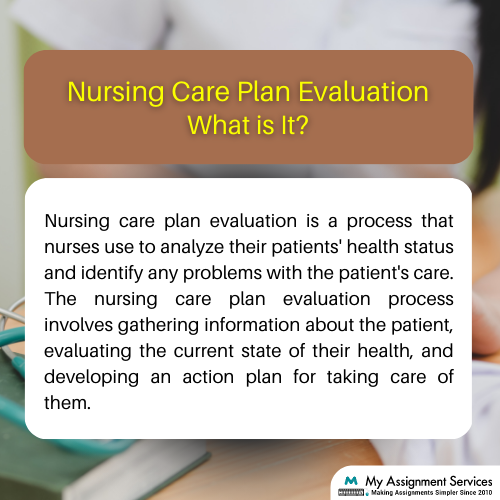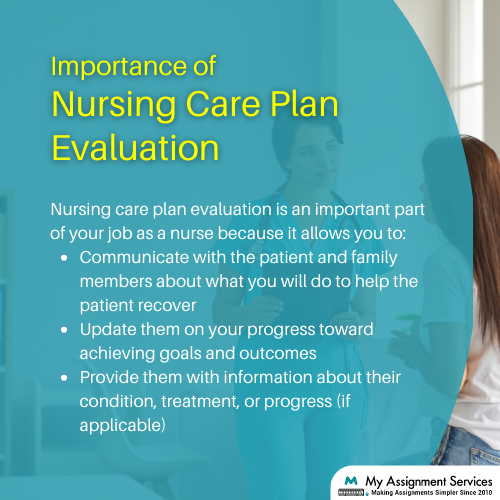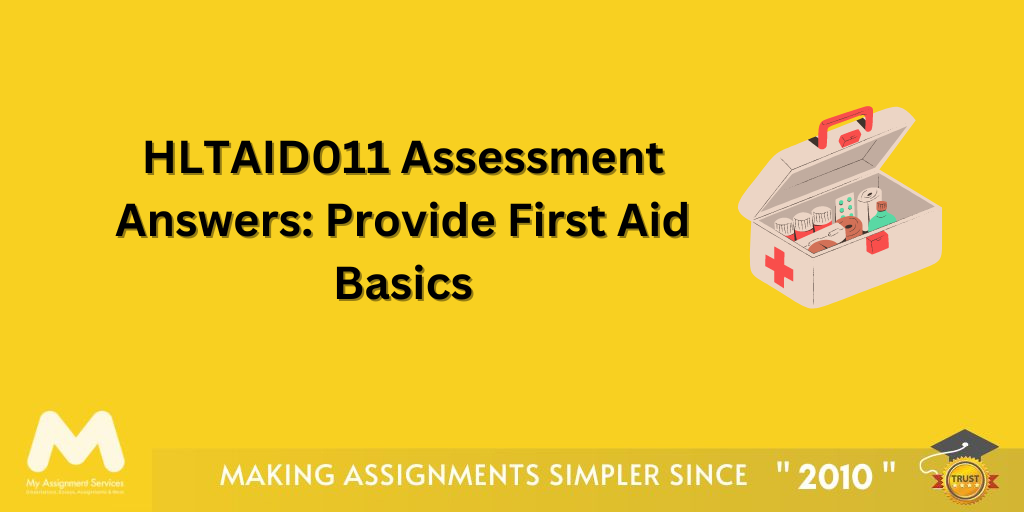
How to Write a Nursing Care Plan Evaluation for New Nurses
The nursing care plan is a document that outlines your expectations and duties of a specific type of patient. While learning new procedures and techniques, it can be easy to forget what to expect from this patient population. A nursing care plan is a document that outlines the goals, services, and activities that you will be providing to your patients daily. It's an important document if you are in healthcare because it can help improve communication between staff members and caregivers. This kind of care plan may be helpful for new nurses as well.
A good nursing care plan is a legal document written by a nurse working at the highest level possible. It should also include a description of each part of any patient with specified instructions for each situation in question. This blog was designed for new nurses and healthcare professionals to learn about this document during their education period in the healthcare industry.

What is Nursing Care Plan Evaluation?
A nursing care plan evaluation involves assessing a patient's needs, developing a plan to meet those needs, implementing, and monitoring that plan—and then evaluating whether it was successful. A nurse's ability to assess patients, formulate care plans, and evaluate their outcomes is essential to the nursing process.
During the evaluation, nurses gather information about a patient's medical history, current condition, and other relevant data. Based on this information, they assess physical, emotional, and cognitive needs to develop an appropriate care plan. The care plan is designed to meet the patient's needs and includes measurable and achievable goals.
Once the care plan is implemented, nurses monitor a patient's progress and adjust as needed. They also involve other healthcare team members in implementing or revising plans based on changing circumstances.
Nurses use the patient's progress and assessment to make changes, improvements, or additions to the original care plan. Overall, the nursing care plan evaluation helps nurses provide high-quality care and ensure optimal outcomes.
What Is a Nursing Care Plan Evaluation Statement?
A nursing care plan evaluation statement is a summary of how well the patient's needs are being met by their plan. It can be found in the medical records and used to communicate progress with other healthcare team members.
A nursing care plan evaluation statement should include the following information:
- The patient's condition and diagnosis were summarized.
- The care plan includes goals and interventions that address the client's needs.
- The patient's ability to reach those goals
- Patient care plan adjustments are made based on the patient's progress.
- The patient's medical condition and prognosis.
Steps of Nursing Care Plan Evaluation
- Assessment
- Planning
- Implementation
- Evaluation
- Documentation
- Follow-up
- Continual reassessment
Assessment
The first step in the nursing care planning process is assessment, which involves a detailed examination of the patient's medical history, physical examination, and laboratory results.
The assessment phase involves gathering information about the patient's current condition, past medical history, and family history. The nurse also discusses options for treatment and management of the illness with the patient.
The assessment component of nursing care plan evaluation involves the nurse gathering data regarding the individual's health status. This may include determining the client's current condition, past medical history, family history, and medication history.
Planning
Once the assessment has been completed, the care plan must be developed. This involves determining what interventions will help the patient achieve their goals and making a plan for implementing these interventions. It also includes determining appropriate discharge criteria and identifying resources available to assist patients with their reintegration into society at home or in an assisted living facility if required.
This includes planning for each aspect of care, including hospitalization, home care, or outpatient visits. The plan should also consider any future problems that may require intervention or follow-up care.
Implementation
Implementation is the process through which you evaluate your nursing care plan. You'll implement strategies in coordination with your clients' current caregivers so that they feel more confident about providing care themselves or delegating responsibilities to others when needed.
The implementation phase includes setting up a nursing care plan committee, developing a detailed nursing care plan document, and implementing this document by assigning responsibilities for each phase of caring for patients who are recovering from illness or injury.
Evaluation
The evaluation assesses the patient's status and responses to treatment and determines if further intervention is needed. The nurse evaluates the patient's condition and the effects on the patient's health care. It is essential to assess the progress of the patient's condition over time and changes that may have occurred in their condition. This information helps determine whether the patient is responding to treatment, which will make it possible for the nurse to determine if additional treatment is necessary.
Documentation
Documentation refers to the process of recording information about a patient's condition, activities, reactions, and responses to treatment on an electronic record or another information system. The documentation helps to ensure that all necessary nursing interventions are provided promptly, as well as identifying gaps in care or areas for improvement. Documentation also provides evidence that decisions have been made regarding patient care and whether they were appropriate. Documentation should be completed by all caregivers involved in providing care for patients.
Documentation includes both documentation of observations and documentation of treatments or interventions. The nurse records information about what he or she does during a nursing care plan evaluation and how they do it. Documentation may include the following:
- A nursing care plan (NCP)
- Brief notes from the physician's office visit
- Discharge summary
- Progress notes from a nurse during hospital time
- Recorded phone conversations or other documented verbal discussions between physician and nurse

Follow-up
A review of the patient's progress at each follow-up visit. You must follow up on all your patients to assess if your plan has been effective. This means that you must review their progress and adjust as necessary.
Follow-up refers to the ongoing assessment of a patient's condition following the initiation of nursing care plans. Observation, evaluation, and assessment are all used in this process to determine if there has been improvement or deterioration in a patient's condition since the initial assessment.
A follow-up plan involves determining when various tasks should be completed following a nursing care plan evaluation. The frequency of these tasks may vary depending on what needs to be done at each stage in the patient's recovery process.
Continual Reassessment
Continual reassessment refers to ongoing monitoring of a patient's status throughout their recovery from an illness or injury. Reassessment may be performed at regular intervals (e.g., daily), or it may be conducted at specific times throughout treatment (e.g., after each medication change.
The nurse must continue to assess the patient's progress during each visit. This can be done by assessing the patient's ability to perform activities of daily living and their ability to participate in other activities, such as outings or recreational activities. The nurse should also check for signs of illness or change in condition. For example:
- A decrease in urinary output may indicate a decline in renal function.
- An increase in temperature may indicate infection.
- A decrease in appetite may indicate that a disease process is affecting the gastrointestinal tract.
- A sudden change in mood may indicate emotional distress.
Get an In-depth Understanding of a Nursing Care Plan with Our Experts
If you want to improve your skills in writing nursing care plan evaluations, look no further than our academic advisory! Overall, nursing care plans are an important practice tool for every nurse to master. To be successful in nursing school, before graduating and taking the NCLEX exam, a student must demonstrate excellence in all areas. These skills must be honed throughout the nursing education process and even while working as a registered nurse. If you want to understand the nursing care plan evaluation, contact us by filling out the form. We conduct one-to-one live sessions and help students obtain in-depth knowledge of complex nursing topics.
Related Study Materials
Our Experts can answer your Assignment questions instantly.
Ask Question0 Comment
Get It Done! Today
1,212,718Orders
4.9/5Rating
5,063Experts













Loved reading this Blog? Share your valuable thoughts in the comment section.
Add comment